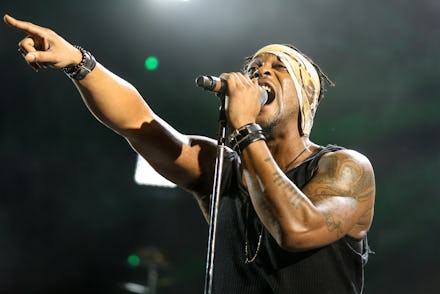How to survive Afropunk without letting people who aren't black drive you insane

Afropunk, the annual Brooklyn-based music festival that celebrates the beauty of black artistry, is once again upon us. It's got a stellar line-up that includes Janelle Monáe, the Internet, Saul Williams, funk legend George Clinton and many more.
The festival started in 2005 after the Afro-Punk documentary shed light on a subculture of alternative-minded black punk musicians and fans.
It's now become more popular than ever and has expanded to Atlanta:
Paris:
And London:
It's pretty clear why. On top of being an incredible artistic space that celebrates black art, it's also got this helpful reminder on its main stage.
But popularity also brings problems. In this case, how can a space that was built by and for black people stay black?
M.I.A., who's Sri Lankan, was recently tapped to headline AfroPunk London before being dropped after fans and artists pushed back.
Some of the criticism had to do with an interview in which the rapper clumsily wrote off the significance of the Black Lives Matter movement by saying that it was a more politically acceptable position to take in America. But really it all boiled down to the idea that a black entertainer should headline the blackest music festival in the western hemisphere.
In an email to the Fader, music journalist Jesse Bernard wrote: "M.I.A. as a performer would've been reasonable, but featuring her as a headliner sends the wrong kind of message that black people have heard for too long — when black people create their own spaces, they're expected to open them up to everyone, whilst it's not always reciprocated."
But even away from the main stage, racism and cultural appropriation manage to find their way into the festival. Case in point: these unidentified white women who got into a shouting match with festival-goers in the United Kingdom for wearing headscarves: